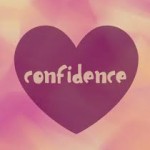Archive for Relationship with Self
Relationships 101 Week 1
Posted by mmorand on February 5, 2011 This article is part of a series: Relationships 101: Week 1, Week 2, Week 3, Week 4. Well, it is February after all, so, I thought I’d make this next series of articles dedicated to the top of how to have a great relationship.
I am guessing that you have at least one relationship in your life? And I’m guessing that you might like to know how to feel more confident, secure, trusting, open and intimate in that relationship?? And maybe you want to be able to know the difference between what is your “stuff,” i.e. what you have responsibility for and what you have control over, and what has nothing to do with you at all?
What about learning how to discuss sensitive issues with the greatest ease and to the highest possible resolution? That would be a good thing, no?
What about learning how to know when you’ve truly done your best and how to let go of relationships that can never meet your needs without feeling guilty, bad, like a failure, responsible, ashamed or at all uncertain that you’re doing the right thing?
Yes, it’s possible. In fact, when you follow these basic steps that we’re going to explore over the next few weeks, you’ll see how there is a method to being successful in relationships. It’s not a secret. You didn’t miss the class where everyone else got shown how to do relationships. We all need to be shown this one way or another. And there’s no time like the present, right? Right!
We’ll tackle each of the above core relationship issues as we go through the next month or so, and by the end of it all, you’ll know exactly how to create and maintain the relationships you seek in all areas of your life. It may take a little practice but you’ll at least have a lay of the land, know what you’re shooting for, and what to do to reach your goals.
And in case you haven’t put this together for yourself yet, let me reassure you that when you begin to work with these tools you will also naturally be building your self-esteem and sense of equality with others as well as naturally loosening the stranglehold that food and harmful all-or-nothing thinking has on you.
For this week we’re going all the way back to the beginning of any relationship, back before there were two, to just you.
Now, I realize that you’ve already likely got a couple of connections in your life if not many, and I’m not suggesting that you abandon them and start from scratch. I’m suggesting that until you step back from your connections for a moment and get very clear with yourself about what it is that you are looking for from others and what it is that you bring to the table, you can’t even truly begin to assess the quality of the connections you’ve got now, let alone begin to do your part to make them as strong and healthy as they can possibly be and hold others accountable in the same way.
So, for this week, to make the best use out of this series and start creating the relationships you desire, there is a little time and energy required of you. It will pay you off in spades, I guarantee you.
Well, it is February after all, so, I thought I’d make this next series of articles dedicated to the top of how to have a great relationship.
I am guessing that you have at least one relationship in your life? And I’m guessing that you might like to know how to feel more confident, secure, trusting, open and intimate in that relationship?? And maybe you want to be able to know the difference between what is your “stuff,” i.e. what you have responsibility for and what you have control over, and what has nothing to do with you at all?
What about learning how to discuss sensitive issues with the greatest ease and to the highest possible resolution? That would be a good thing, no?
What about learning how to know when you’ve truly done your best and how to let go of relationships that can never meet your needs without feeling guilty, bad, like a failure, responsible, ashamed or at all uncertain that you’re doing the right thing?
Yes, it’s possible. In fact, when you follow these basic steps that we’re going to explore over the next few weeks, you’ll see how there is a method to being successful in relationships. It’s not a secret. You didn’t miss the class where everyone else got shown how to do relationships. We all need to be shown this one way or another. And there’s no time like the present, right? Right!
We’ll tackle each of the above core relationship issues as we go through the next month or so, and by the end of it all, you’ll know exactly how to create and maintain the relationships you seek in all areas of your life. It may take a little practice but you’ll at least have a lay of the land, know what you’re shooting for, and what to do to reach your goals.
And in case you haven’t put this together for yourself yet, let me reassure you that when you begin to work with these tools you will also naturally be building your self-esteem and sense of equality with others as well as naturally loosening the stranglehold that food and harmful all-or-nothing thinking has on you.
For this week we’re going all the way back to the beginning of any relationship, back before there were two, to just you.
Now, I realize that you’ve already likely got a couple of connections in your life if not many, and I’m not suggesting that you abandon them and start from scratch. I’m suggesting that until you step back from your connections for a moment and get very clear with yourself about what it is that you are looking for from others and what it is that you bring to the table, you can’t even truly begin to assess the quality of the connections you’ve got now, let alone begin to do your part to make them as strong and healthy as they can possibly be and hold others accountable in the same way.
So, for this week, to make the best use out of this series and start creating the relationships you desire, there is a little time and energy required of you. It will pay you off in spades, I guarantee you.
- Allow yourself to imagine the key people you’ve had in your life, however briefly or far removed, that you really felt safe with and really felt respect for and respected by. If no one comes to mind, as can be the case, use characters from Hollywood movies, cable TV shows or books that you liked (I confess that when I began to explore this concept for myself in my search for healthy female friendships and healthy romantic partnerships, I was so starved for healthy female role models that I clung to the integrity, confidence, self-respect and courage that Angela Lansbury’s character, Jessica Fletcher, portrayed in the “Murder She Wrote” TV series (she’s got serious values and chutzpah, that gal!). In other words, feel free to use anyone that comes to mind as your foil for a respectful, healthy, grounded person.
- Make a list of the characteristics and traits that those people embody in your experience of them.
- If you’re stuck, ask yourself the reverse question: What has been/is present in your relationships in which you have felt unsafe, insecure, and /or disrespected? Now turn that around and that’s what you want, i.e. a past partner of mine would threaten to leave every time – literally – I held him accountable to his commitments (that relationship didn’t last long!). If I were to turn that very unsafe pattern around into what I want, I’d say I need friends/partners who have integrity; who are committed to honouring their word and who are respectful and accepting of the consequences of not doing so; someone who can apologize openly, learn from their mistakes and express their anger or fear in ways that aren’t shaming or blaming but rather bring us closer together and deepen my respect for them. To me, these pieces are fundamental to any healthy relationship.
- Now, add to that list, any additional traits, characteristics, values, and principles that are important to you in order for you to feel safe and respected and trusting of another person. **Notice how your inner critic (the Drill Sgt.) may chime in about what you can and can’t ask for; what you are deserving of; what you are entitled to; what the unlikely chances are of you actually getting this and simply use your Drill Sgt. dialogue tool: What is your intention in saying that? And what is important about that? And what is important about that? And what is important about that? And what is important about that? And what is important about that? And when you get to the end, just thank your Drill Sgt. for his intention, tell him how he could achieve that outcome with greater respect and enhance your self-esteem instead of trashing it. Remember your inner critic loves you, he just is very confused about what love is and how best to show it…remind you of anyone from your past??
- This is your list of traits and values and principles that you need someone to have in order to feel safe, trusting, and respected in your relationship with that person. Regardless of whether you think it’s possible for you or whether you worry that that person doesn’t even exist, this is what you need! No other connection is going to feel safe to you, so don’t settle. We ALWAYS get what we are willing to settle for. Don’t be willing to settle for anyone who doesn’t create a sense of respect, safety and trust with you. (And don’t be willing to settle for anything less in your relationship with yourself either!)
- You may want to add a few additional traits for that special someone….but otherwise, you are looking for people who fit these characteristics and you’re not going to waste your time and energy trying to build a relationship with someone who isn’t capable of these core traits and behaviours, not unless you want to continue to feel insecure and use food to cope that is.

Tags: all-or-nothing thinking, binge eating, co-dependence, co-dependency, co-dependent, compulsive eating, eating disorders, overeating, purging, relationships, self confidence
Posted in: CEDRIC Centre, newsletter, Relationship with Food, Relationship with Others, Relationship with Self, Relationships 101
Leave a Comment (4) →Steve-o
Posted by mmorand on January 29, 2011 Last Monday, the 17th of January, 2011, my step-father Stephen Patton died suddenly. All last week I was actively engaged in supporting my mom, family members (my son was so very close to Steve or Steve-o as I called him) and myself through the process of funeral arrangements, services, wills and other related bits and pieces. And don’t let me forget – grieving.
I think you might like to know that I didn’t feel the slightest bit compelled to use food to cope or alcohol etc., etc., rather I felt grounded, centred, grief-stricken, grateful to have known Steve-o and to have had the many wonderful moments with him that I did.
(more…)
Last Monday, the 17th of January, 2011, my step-father Stephen Patton died suddenly. All last week I was actively engaged in supporting my mom, family members (my son was so very close to Steve or Steve-o as I called him) and myself through the process of funeral arrangements, services, wills and other related bits and pieces. And don’t let me forget – grieving.
I think you might like to know that I didn’t feel the slightest bit compelled to use food to cope or alcohol etc., etc., rather I felt grounded, centred, grief-stricken, grateful to have known Steve-o and to have had the many wonderful moments with him that I did.
(more…)Tags: all-or-nothing thinking, binge eating, co-dependence, co-dependency, co-dependent, compulsive eating, eating disorders, overeating, purging, relationships, self confidence
Posted in: CEDRIC Centre, newsletter, Relationship with Food, Relationship with Others, Relationship with Self
Leave a Comment (1) →Saying I Love You Part Deux
Posted by mmorand on January 15, 2011 Well! You guys/gals are totally awesome!!!!
I have received such incredible sharing this week in regards to your efforts in the challenge I gave you in last week’s article about: Saying I love you, Thank you, and I’m Sorry.
First off, I am so excited and touched and thrilled and happy for you that you accepted this challenge as you did. It takes a great deal of courage to be willing to look within at old patterns and to then take action to change what needs a tweak (or a major overhaul)! It takes great courage but it’s so incredibly worth it.
The wonderful thing is that those of you who took the plunge and challenged yourself to say “Thank you” and “I’m Sorry” and “I love you” all learned such amazing things about yourself and gave yourself the gift of deeper connections with others. Woohoooo!!!
(more…)
Well! You guys/gals are totally awesome!!!!
I have received such incredible sharing this week in regards to your efforts in the challenge I gave you in last week’s article about: Saying I love you, Thank you, and I’m Sorry.
First off, I am so excited and touched and thrilled and happy for you that you accepted this challenge as you did. It takes a great deal of courage to be willing to look within at old patterns and to then take action to change what needs a tweak (or a major overhaul)! It takes great courage but it’s so incredibly worth it.
The wonderful thing is that those of you who took the plunge and challenged yourself to say “Thank you” and “I’m Sorry” and “I love you” all learned such amazing things about yourself and gave yourself the gift of deeper connections with others. Woohoooo!!!
(more…)Saying Thank You, I’m Sorry, and I Love You
Posted by mmorand on January 8, 2011 This week I thought I’d give you a little communication assignment and ask you to provide me some feedback on what you discover by saying thank you, I’m sorry, and I love you. Your feedback and my knowledge on the subject will form the body of next week’s Tools For Recovery article.
One of the hardest things that we who use food to cope have to learn to do is to find true peace and comfort with being honest about our imperfection. Yes, folks, we are imperfect. We screw up, we stick our foot in our mouths, we forget birthdays, forget to return calls, inadvertently (and perhaps sometimes intentionally) say things that hurt people’s feelings. We sometimes run late, we make errors when we text or email people, we don’t always follow through on our commitments to ourselves or others.
We err. It’s human.
(more…)
This week I thought I’d give you a little communication assignment and ask you to provide me some feedback on what you discover by saying thank you, I’m sorry, and I love you. Your feedback and my knowledge on the subject will form the body of next week’s Tools For Recovery article.
One of the hardest things that we who use food to cope have to learn to do is to find true peace and comfort with being honest about our imperfection. Yes, folks, we are imperfect. We screw up, we stick our foot in our mouths, we forget birthdays, forget to return calls, inadvertently (and perhaps sometimes intentionally) say things that hurt people’s feelings. We sometimes run late, we make errors when we text or email people, we don’t always follow through on our commitments to ourselves or others.
We err. It’s human.
(more…)Don’t Binge – Try Natural Holiday Eating
Posted by Cedric on January 2, 2011Don’t Binge – Try Natural Holiday Eating
- Eat when you’re hungry;
- Stop when you’re full;
- Make honoring choices the majority of the time (choices that enhance your health and overall wellbeing);
- And make choices to have the processed and refined treats that abound at this time of year in moderation.
So, here’s how to get to the fun, peaceful side of food and the holidays.
1. Invite yourself to ask yourself before you eat anything: Am i truly hungry? yes? Then eat. No? Then ask yourself: What might just have happened or what might I be thinking about that is making me feel anxious or unsettled and therefore triggering me to want to eat or focus on food and my weight to distract, numb or soothe myself?
2. What is one thing I can do to take action towards resolving that stressor and to feel more peaceful in this moment?
Let’s say you’re thinking about going home for the holidays and seeing Uncle Jim who is a complete, mysoginistic ass and always has a snide comment to direct your way. And you’re naturally feeling anxious anticipating being the same room with him, let alone speaking to him.
What can you do to feel more peaceful now?
You could reassure yourself that you’ll simply ask him, whenever he lays his line on you: “What is your intention in saying that?”; or “I’m not sure I understand what you mean can you say that again?” – Make him repeat himself – make him explain himself – don’t just absorb it – make him do his work and in so doing make him look like an ass! Ahhh, I feel better already!
Of you could reassure yourself that he’s really just a dick and it doesn’t matter what he says – everyone thinks he’s a jerk, no one has the courage to say anything but no one takes anything he says to heart either. So, maybe we steer clear of him and if he does happen to catch up with you we lay our line on him and let him know that things have changed.
You could also just choose not to go if there isn’t enough in the way of warm, loving encounters to be had to warrant putting up with Uncle Jim. That is a great act of self-care and will make you feel peaceful right away.
If you choose this option you’ve got to call the host and let them know right away – don’t make excuses – just say you’re not feeling up to the social event at this time and you’re going to take some time out for yourself and just rest.
Binging happens because you’re stressed and not handling it well. End of story. Learn how to respond appropriately to stress and how to diminish it in your life and the binging disappears and you lose weight naturally – without effort – without diets.
I’ve been there and I’ve done it and so have many clients I’ve counselled over the past 20 years. Let me show you how.
Love Michelle
mmorand@cedriccentre.com
The Fastest Path to Self-Confidence, Part Deux
Posted by mmorand on December 17, 2010 Last week I gave you a little task designed to help you begin to quickly get grounded in your right to feel and think as you do and to ask for what you need without guilt, shame, or insecurity and become self confident.
I’ll recap the core message, since I know it’s been a busy 7 days, and some of you may have forgotten, or not have yet got around to reading last week’s article, The Fastest Path to Self-Confidence.
The short version: If you’re using food to cope, you’re out of touch with reality.
There, that about sums it up!
Have a great week.
Just joshin’! There’s more.
Let me fill that statement above out a bit for you and then let’s move on to answering the question: “What can I do to feel more confident in my life as quickly as humanly possible, and in so doing, stop feeling so overwhelmed that I harm myself with binging, purging or restricting?”
(more…)
Last week I gave you a little task designed to help you begin to quickly get grounded in your right to feel and think as you do and to ask for what you need without guilt, shame, or insecurity and become self confident.
I’ll recap the core message, since I know it’s been a busy 7 days, and some of you may have forgotten, or not have yet got around to reading last week’s article, The Fastest Path to Self-Confidence.
The short version: If you’re using food to cope, you’re out of touch with reality.
There, that about sums it up!
Have a great week.
Just joshin’! There’s more.
Let me fill that statement above out a bit for you and then let’s move on to answering the question: “What can I do to feel more confident in my life as quickly as humanly possible, and in so doing, stop feeling so overwhelmed that I harm myself with binging, purging or restricting?”
(more…)Tags: acceptance, assumptions, binge eating, body/mind/spirit, co-dependent, communication, compulsive eating, core beliefs, drill sergeant, eating disorders, exploring, insecurity, intention, overeating, past, present, purging, self care, self confidence, self esteem, self love, self worth
Posted in: CEDRIC Centre, Relationship with Others, Relationship with Self
Leave a Comment (2) →The Fastest Path to Self-Confidence
Posted by mmorand on December 11, 2010 If you’ve been reading my blog for awhile then you’ve heard me say it before: Affirmations, just like diets, typically only work when you don’t really need them, and the path to self-confidence is the only real long term solution. By this I mean if you can actually diet successfully: Eat a lower number of calories than you have been eating consistently enough to lose weight and then maintain that weight loss with no continuous effort to restrict (otherwise you’re a chronic dieter and haven’t really accomplished your goal), you actually don’t need to diet in the first place because being able to do that means you’re a natural eater (which is what you’re here to learn how to be, I suspect).
(more…)
If you’ve been reading my blog for awhile then you’ve heard me say it before: Affirmations, just like diets, typically only work when you don’t really need them, and the path to self-confidence is the only real long term solution. By this I mean if you can actually diet successfully: Eat a lower number of calories than you have been eating consistently enough to lose weight and then maintain that weight loss with no continuous effort to restrict (otherwise you’re a chronic dieter and haven’t really accomplished your goal), you actually don’t need to diet in the first place because being able to do that means you’re a natural eater (which is what you’re here to learn how to be, I suspect).
(more…)Tags: acceptance, CEDRIC Centre, self care, self confidence, self esteem, self worth, triggers
Posted in: 2010, CEDRIC Centre, newsletter, Relationship with Self
Leave a Comment (0) →Learned Helplessness and Eating Disorders
Posted by Cedric on December 8, 2010Learned Helplessness and Eating Disorders
When you start to think about changing your relationship with food and then immediately feel a stuck, sinking sensation inside – that is the sign that your mind just told you a learned helplessness story such as:
It’s too hard;
It’ll take too long;
I can’t change;
I’ll fail;
It might work for others but it won’t work for me;
There’s no point in trying;
I’m not smart enough / deserving enough of good things;
Better not to try than to try and fail;
I may as well not even bother.
Or, when you say to yourself “I don’t really think anything but food can make me feel better and I don’t really think I can learn to resolve my underlying stressors so I have to keep my numbing tactics at the ready,” that too is learned helplessness.
The fact is, no one who uses food to cope ever does so from any place other than learned helplessness. But there is a quick solution to that auto-default way of thinking that will free you to move forward towards the fulfillment of your goals.
The irony is that the thing that keeps you stuck in your efforts to be free of binging, dieting, and weight loss stress is that same thinking that tells you there’s no point in trying something new to change.
You’re being driven by an irrational, limited and extreme – also known as all-or-nothing – way of thinking. That’s the same thought process that makes you think it makes sense to eat more than you’re hungry for to solve a problem at work or in a relationship; or to not let yourself to eat when you are hungry as a means of building self-esteem. Irrational? Definitely! Common? You bet! Curable? Absolutely.
Let me show you the simple steps to change that learned helplessness thinking and free yourself to stop binging, stop dieting, stop weight loss frustrations and any other pattern that keeps you stuck feeling crappy about yourself and out of control.
Love Michelle
mmorand@cedriccentre.com
My role in your life is to shift you out of that stuck, all-or-nothing head space asap and get you into a possibilities mindset where you genuinely realize the many options in each situation and feel trusting of yourself to respond to the stresses in life in ways that are reasonable, respectful, fair and healthy.
Tags: food, learned helplessness, stressors
Posted in: 2010, All-or-Nothing Thinking, CEDRIC Centre, Relationship with Self
Leave a Comment (0) →Reaction vs. Action
Posted by mmorand on November 26, 2010 I had a rough moment yesterday with my dear sweet son. He’s 10. He and his friends at school have been dabbling in using the word “gay” in a derogatory way and he’s made a few statements these past few months that I chastised him for in that regard. I had talked with him on a number of occasions, following these comments about people’s right to their own sexuality, about tolerance, about prejudice, and how to explore his own thoughts and beliefs to decide why he is saying what he’s saying.
But….last night, I lost it. We were driving along on our way home from the grocery store and he mentioned that during class that day they were asked to make some notes about the qualities they would want in a babysitter (in preparation for them becoming potential sitters themselves). My son said that he wrote that he wouldn’t want anyone who is gay, bi, or lesbian to sit him. Well, I hit the roof! All these talks about respecting the rights of others, all these chats about tolerance and acceptance and consideration, all those heavy discussions about prejudice and the harm it does and he’s writing this??
(more…)
I had a rough moment yesterday with my dear sweet son. He’s 10. He and his friends at school have been dabbling in using the word “gay” in a derogatory way and he’s made a few statements these past few months that I chastised him for in that regard. I had talked with him on a number of occasions, following these comments about people’s right to their own sexuality, about tolerance, about prejudice, and how to explore his own thoughts and beliefs to decide why he is saying what he’s saying.
But….last night, I lost it. We were driving along on our way home from the grocery store and he mentioned that during class that day they were asked to make some notes about the qualities they would want in a babysitter (in preparation for them becoming potential sitters themselves). My son said that he wrote that he wouldn’t want anyone who is gay, bi, or lesbian to sit him. Well, I hit the roof! All these talks about respecting the rights of others, all these chats about tolerance and acceptance and consideration, all those heavy discussions about prejudice and the harm it does and he’s writing this??
(more…)Tags: acceptance, CEDRIC Centre, self care, self esteem, self worth, triggers
Posted in: 2010, CEDRIC Centre, newsletter, Relationship with Self
Leave a Comment (2) →